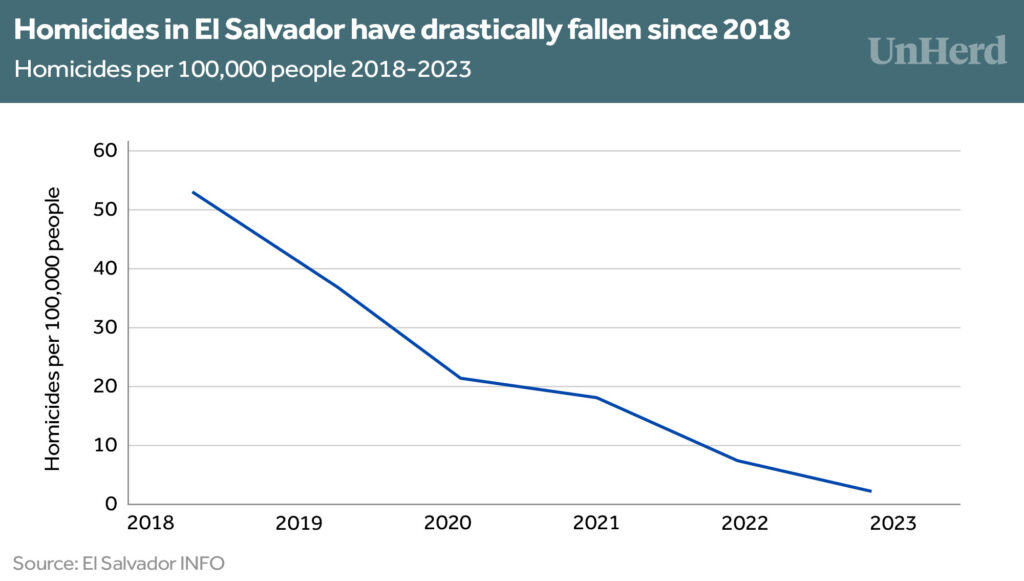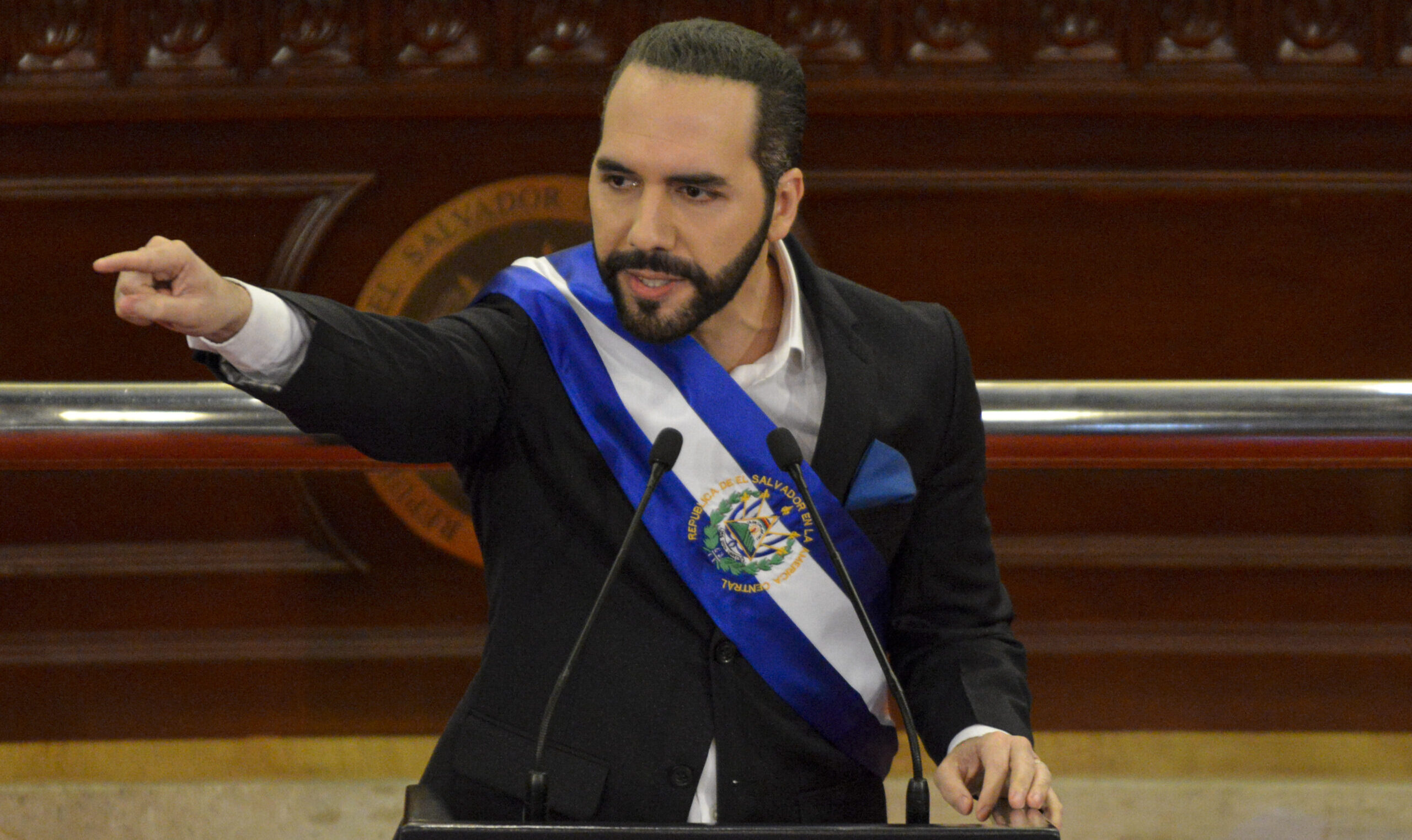Since taking office in June 2019, El Salvador’s social-media savvy president, Nayib Bukele, has cracked down harshly on the country’s criminal gangs. Touting his achievements on Twitter this week, he claimed that “we turned the world’s murder capital into the safest country in Latin America”. But is this true?
Bukele has variously described himself as a “philosopher king” and the “world’s coolest dictator”. And his crime-fighting methods are certainly not ones you’d associate with a conventional leader.
Shortly after taking office, he announced his Territorial Control Plan, which saw the deployment of heavily armed police and military personnel in neighbourhoods controlled by criminal gangs. More than 4,000 people were arrested in the first few weeks alone. The Plan’s implementation coincided with a dramatic decline in the homicide rate from 53 per 100,000 in 2018 to 18 per 100,000 by 2021.
Note that Bukele’s government is accused of having negotiated a truce with the gangs, whereby they agreed to reduce the number of homicides in exchange for more favourable prison conditions and other benefits. He denies the accusation.

Any truce that was negotiated appears to have fallen apart on 27th March 2022, when there were 62 murders in a single day. The government then declared a “State of Exception”, under which some constitutional rights were suspended and additional military personnel were deployed. By July 2023, around 70,000 suspected gang members had been arrested — giving El Salvador the world’s highest incarceration rate.
The homicide rate again fell dramatically, reaching 7.8 per 100,000 in 2022. This is still higher than in some other Latin American countries, such as Chile — which according to the thinktank InSight Crime had a homicide rate of 4.6 per 100,000 last year. So is Bukele’s claim that El Salvador is the “safest country in Latin America” false?
Apparently not. The website El Salvador INFO reports that the Salvadorian National Police recorded 74 homicides in the first six months of the year. (I was able to verify this figure by reviewing tweets sent by the National Police at the end of each month). If we double 74 and then divide by 6.3 million, we get a predicted rate for the whole year of 2.3 per 100,000. This is noticeably lower than the 2021/2022 figure for every other country in Latin America.
Looking at figures published by El Salvador INFO, there is no evidence that homicides are more frequent in the second half of the year. So unless something unexpected happens, we should expect about 150 homicides by year’s end. One caveat is that official figures do not include individuals who died in confrontations with security forces — though adding these would only increase the total by around 25%.
Going by homicide data, there is good reason to believe that El Salvador is in fact the “safest country in Latin America”. For one that as recently as 2015 had a homicide rate of over 100 per 100,000 (among the highest in the world) this is a remarkable achievement. The question remains as to whether it has come at the expense of human rights, as Bukele’s critics allege, and if that trade-off was worth it.











Join the discussion
Join like minded readers that support our journalism by becoming a paid subscriber
To join the discussion in the comments, become a paid subscriber.
Join like minded readers that support our journalism, read unlimited articles and enjoy other subscriber-only benefits.
Subscribe